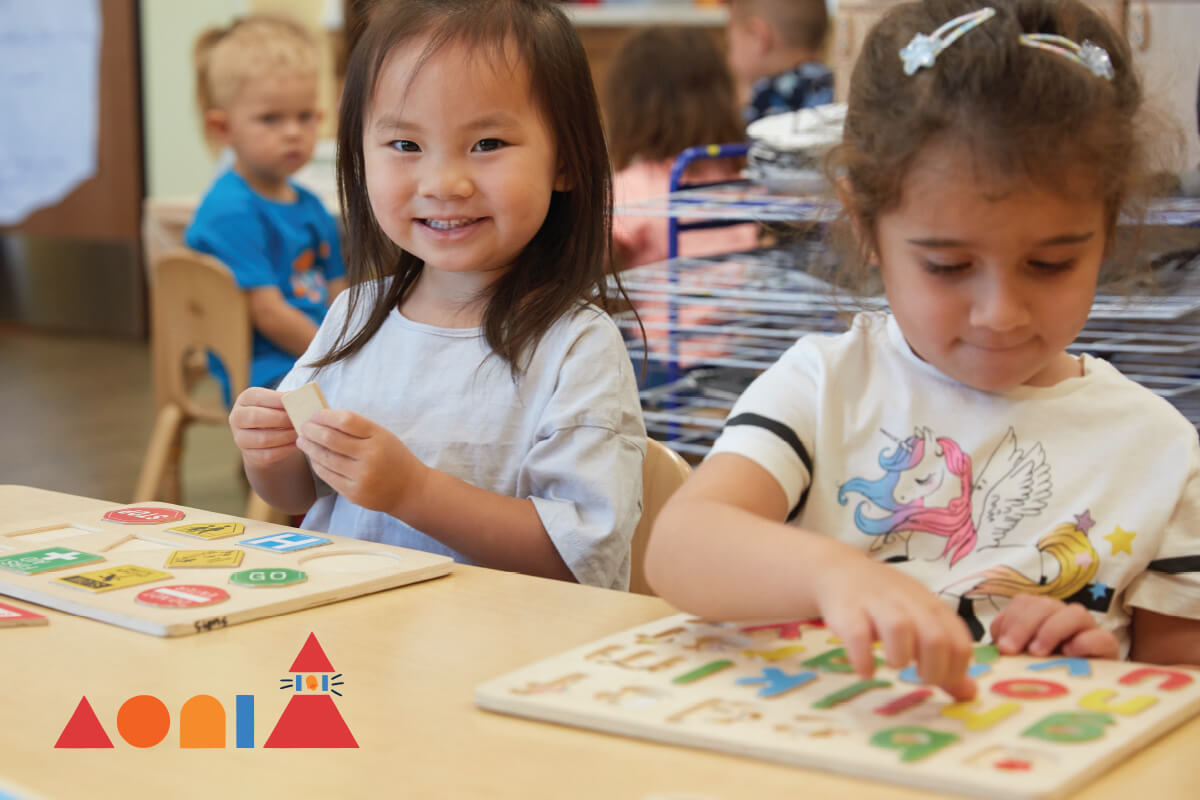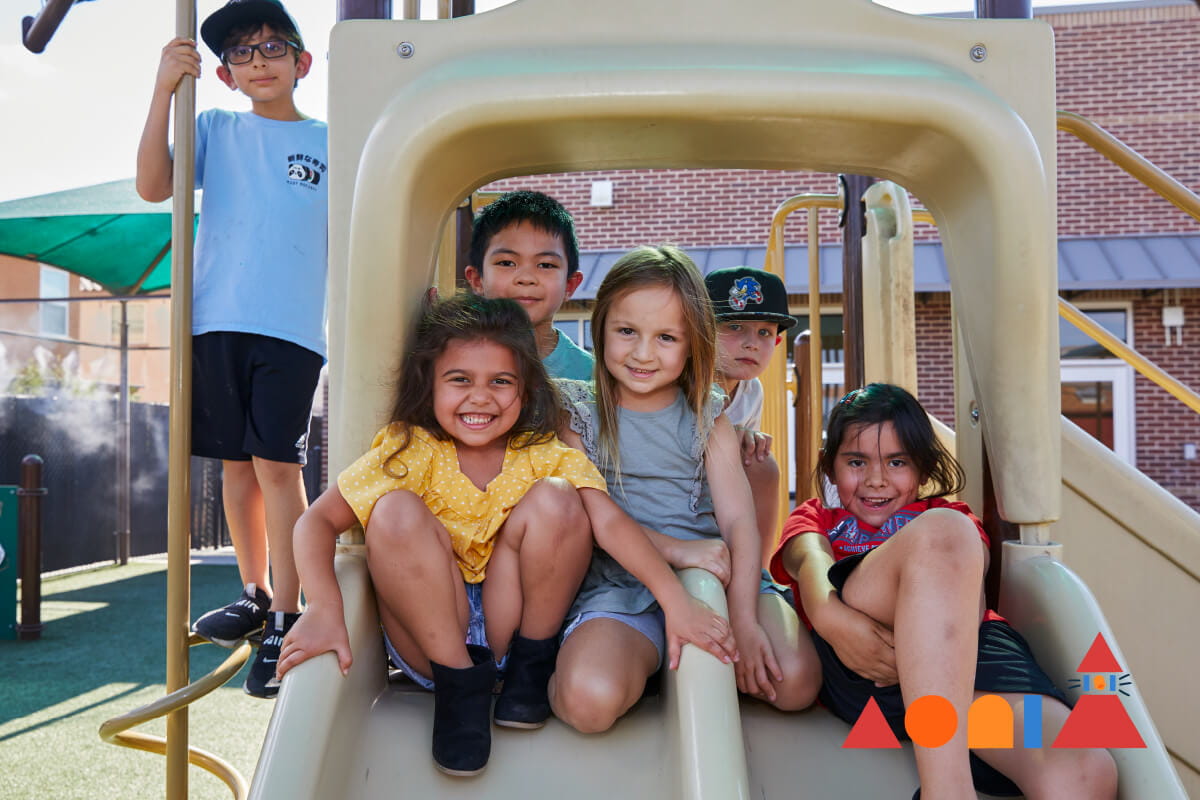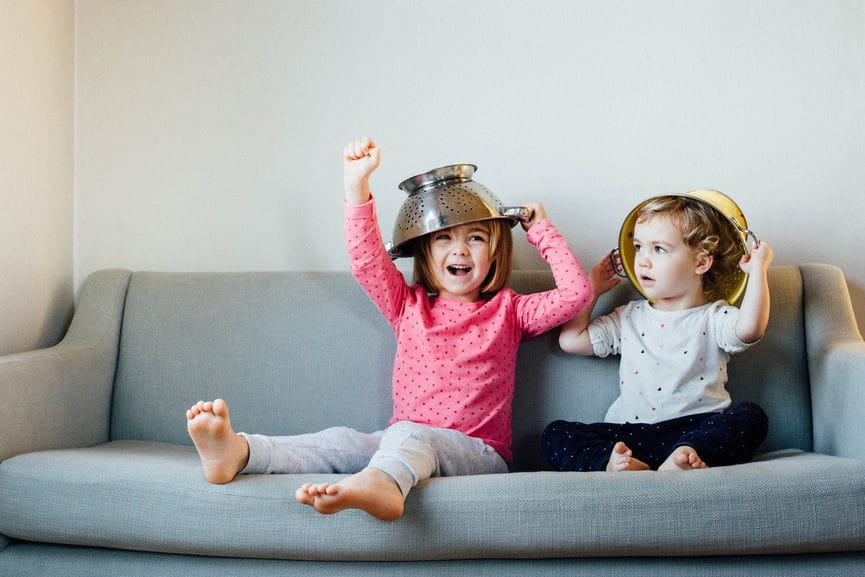Helping Your Child Transition: Overcoming Back-to-School and New Classroom Anxiety
4-minute read
Help your kiddo with first-day jitters as they get ready for a new school, a new center, or a new classroom with tips from inclusion services, a part of our education team:
Set Expectations. Plan a meet and greet with a new teacher and visit your child’s new center, classroom, or school.
Preview the First Day. Talk through their day step by step, help your kiddo draw their own preview book, then read it at bedtime.
Start a Planner. Kiddos at every age can benefit from creating a paper calendar where they can see their whole week and/or month at a glance.
Champion for Your Child. If your child gets anxious, let the teacher know and give them the tools they need to succeed.
For the Grownups. Be patient and give yourself some grace—you're dealing with a new classroom, new school year, and new experiences too.
Back to school season is exciting—and overwhelming—which can give some kids first-day jitters and anxiety. This is especially true if they're starting a new school, a new center, or transitioning to a new classroom. You can help them get off to a great start with tips from our inclusion services—they are part of our education team.
Set Expectations.
Take away the fear of the unknown by letting them know what will happen. If your little one is transitioning to a new classroom at their center, check in with your center director and work together to come up with some solutions. One idea is to ask if you can visit the new room together before drop-off or after pickup. If it is a new school, why not pay a visit? Reach out to the school to see if you can stop by; your kiddo can practice walking through the front door and maybe check out the playground. You can also try to set up a meet and greet with their new teacher to get a peek at their new classroom and maybe even their new desk or cubby—this is great for kids and grownups alike.
Take away the fear of the unknown by letting them know what will happen. If your little one is transitioning to a new classroom at their center, check in with your center director and work together to come up with some solutions. One idea is to ask if you can visit the new room together before drop-off or after pickup. If it is a new school, why not pay a visit? Reach out to the school to see if you can stop by; your kiddo can practice walking through the front door and maybe check out the playground. You can also try to set up a meet and greet with their new teacher to get a peek at their new classroom and maybe even their new desk or cubby—this is great for kids and grownups alike.

Preview the First Day.
Talk through what the first day will look like and help your kiddo draw their own preview book. Guide them through the day, so they can make pictures of every step, from the bus ride or drop-off to their classroom, lunch, recess, and home again. Older kids can write some notes on each page and grownups can help younger kiddos create their story. Once you make your book, read it together at bedtime each night the week before school starts, and then again in the morning before school. Use this dedicated quiet time to listen to their worries and answer any questions they may have about starting school or joining a new classroom. When you acknowledge your child's feelings and help them strategize how to handle what they're concerned about, you boost their confidence.
Talk through what the first day will look like and help your kiddo draw their own preview book. Guide them through the day, so they can make pictures of every step, from the bus ride or drop-off to their classroom, lunch, recess, and home again. Older kids can write some notes on each page and grownups can help younger kiddos create their story. Once you make your book, read it together at bedtime each night the week before school starts, and then again in the morning before school. Use this dedicated quiet time to listen to their worries and answer any questions they may have about starting school or joining a new classroom. When you acknowledge your child's feelings and help them strategize how to handle what they're concerned about, you boost their confidence.
Start a Planner.
Even the youngest students can benefit from creating a visual schedule or paper calendar where they can see their whole week and/or month at a glance. Make it fun for every age with markers to color different events and stickers to mark special occasions. You can use it as a countdown calendar as well—and pair it with the first day book you created. For younger children, it’s helpful to highlight things that your child likes or is excited about so they don’t dread marking off the days—maybe that’s a game night, neighborhood walk, or special dinner. For school-age kiddos, try a weekly planner. Before the first day, use the school calendar to mark holidays and vacations. Then they can use the planner to keep track of homework assignments, spirit days, and so much more.
Even the youngest students can benefit from creating a visual schedule or paper calendar where they can see their whole week and/or month at a glance. Make it fun for every age with markers to color different events and stickers to mark special occasions. You can use it as a countdown calendar as well—and pair it with the first day book you created. For younger children, it’s helpful to highlight things that your child likes or is excited about so they don’t dread marking off the days—maybe that’s a game night, neighborhood walk, or special dinner. For school-age kiddos, try a weekly planner. Before the first day, use the school calendar to mark holidays and vacations. Then they can use the planner to keep track of homework assignments, spirit days, and so much more.
Champion for Your Child.
Teachers want to do right by your family and create a positive, nurturing environment for your child, so some helpful hints from you usually go a long way. If your child gets anxious, let the teacher know. Or if your older kiddo needs extra tools to help them navigate the school day, like a fidget they can keep in their pocket or the ability to take a break if they need it—be sure to share that too. Send an email or set up a meeting with your center director and/or teacher to share insights into your little one. You can create a plan together to help them succeed.
Teachers want to do right by your family and create a positive, nurturing environment for your child, so some helpful hints from you usually go a long way. If your child gets anxious, let the teacher know. Or if your older kiddo needs extra tools to help them navigate the school day, like a fidget they can keep in their pocket or the ability to take a break if they need it—be sure to share that too. Send an email or set up a meeting with your center director and/or teacher to share insights into your little one. You can create a plan together to help them succeed.
For the Grownups.
We know the school year can be stressful or anxiety producing for grownups too. The pressure is on you to reinstate routines after summer break, navigate new activities and sport schedules, and of course help with homework. Try to keep your rhythm over routine—for example, as you start new schedules try to maintain your bedtime routine, even if the times that you do things change a little, it will be comforting for your kiddo to know what comes next for consistency. If you can, wait until you’re in a groove before adding new activities and obligations for an easier transition into the school year. And finally, be patient and give yourself some grace—you're dealing with a new classroom, new school year, and new experiences too.
We know the school year can be stressful or anxiety producing for grownups too. The pressure is on you to reinstate routines after summer break, navigate new activities and sport schedules, and of course help with homework. Try to keep your rhythm over routine—for example, as you start new schedules try to maintain your bedtime routine, even if the times that you do things change a little, it will be comforting for your kiddo to know what comes next for consistency. If you can, wait until you’re in a groove before adding new activities and obligations for an easier transition into the school year. And finally, be patient and give yourself some grace—you're dealing with a new classroom, new school year, and new experiences too.
*This is for informational purposes only and is not a substitute for professional medical advice or treatment. Please consult a qualified medical professional with any questions you may have regarding a medical condition or treatment.




